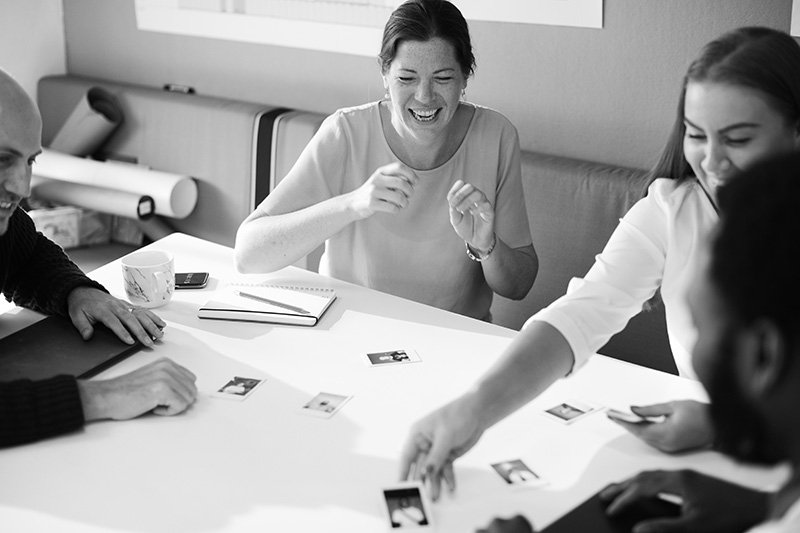Four Ways Speech Therapy Is Like Learning To Swim
Written by: Megan Smith / Treatment / August 2019
Many people come to their first speech therapy session feeling very unsure about how it works, but a background in organized sports, or even just swimming lessons, can contextualize many of the tasks and recommendations that you will encounter while working towards your goals.
Just take a look!
1. Speech therapy and swimming are both complex motor tasks.
To swim, the muscles of the trunk, arms and legs must work together in order to create smooth movements that use the entire body.
Admittedly, there are fewer muscles recruited to speak than to perform full-body exercises, but even the tongue, which most people think of as a single muscle, is composed of eight separate muscles (or muscle pairs) that help change its shape and position multiple times within every word. As an example of this, the word “kale” would require your tongue to pull back and up to make contact with your soft palate, then to pull forwards and make an upwards movement to create the vowel sound, and finally the tip of your tongue would pull back and up to make contact with the roof of your mouth while the back of your tongue pulls back and up once more. In order to do this smoothly, many precise movements need to occur in a very brief amount of time.
Those who are interested in anatomy, or in speech science, may find it interesting to look for MRI video of a singer on Youtube, to watch the complexity of tongue movements for speech. Imagine the speed at which those movements must occur in conversation, when people speak at an average of 150 words per minute (or 2.5 words per second)!
2. It takes time (and instruction) to make things less difficult for yourself.
If you know how to swim, you may remember the first time you tried to float without assistance. Without experience coordinating this specific action, most people will become very tense in an attempt to “force” themselves to stay afloat. This is nerve-wracking and completely exhausting, as a significant amount of the energy used is not only unnecessary, but actively making the task more difficult. Over time, they will learn that floating may actually be more effective when they are relaxed in much of their body and only using the specific muscles that are required for the task.
A clinical example of such a problem in speech therapy might be a teacher coming in for voice therapy, who overuses the muscles of their voice box when trying to project their voice. Until they learn exactly which muscles are needed for speech, and which are able to relax, they will exert much more force than needed, and their voice may tire or become sore before the end of their work day. With time, and effort put specifically into relaxation, they can fine-tune their vocal use to recruit only the needed muscles and conserve the energy they will need to teach their sixth class of the day.
3. Teaching competitive swimming and casual swimming will require two different skillsets.
In swimming, it is important to choose a level of instruction that fits your needs. The skills of Michael Phelps’ coach may be wasted on someone looking for a basic introduction in floating and doggy paddle. Similarly, if a professional swimmer was looking to target a very specific aspect of their swimming form, they would want to choose a coach with a lengthy resume working with high performers. To give a personal example, I failed level 4 swimming multiple times as a child because of my (abysmal) freestyle form. Eventually, my parents tried a new strategy by putting me on the swim team. Their focus on perfecting form, rather than teaching the basics made all the difference to my ability. Eventually, I was able to compete against other children my age, placing in the middle of the pack rather than losing every time.
How is this relevant to speech therapy? It is important to choose your coach mindfully. Just as someone who is very effective at teaching young children to float may not be the best candidate to help Michael Phelps shave a fraction of a second off of a 50m swim time, you should choose your speech therapist based on their expertise. The needs of someone looking for very basic public speaking tips and the needs of a professional speaker perfecting their TEDx presentation will be just as different. Do you need assistance from someone with solid knowledge of the fundamental aspects of training speech and language, or is your communication difficulty something that you would trust only to someone with significant experience in that area? Doing research on the clinic that you would like to visit, and the individual speech therapists working there, will help you find the best possible fit.
4. Drills will help you perfect your form.
When swimming, slow and repetitive practice will improve your coordination. By slowing down, you can become much more aware of what your body is doing, and gain more control at this easier level of difficulty before speeding things back up. Similarly, movements that are too complicated to learn together can become much simpler when split up. Using a kickboard and a pullbuoy to separately train your kick and pull will make both of them more effective when combined later, and do great things for your stroke.
Speech therapy is exactly the same! When a task such as modifying your accent in English feels too difficult, a combination of splitting that task into smaller pieces and slowing each piece down will help you get the control that you need in order to succeed. Think of home practice as sports drills – learn to perfect your form, and the improvements will slowly become automatic. Just like floating can change from becoming extremely difficult to feeling easy and automatic, learning a new sound or way of speaking will feel very challenging in the beginning, and slowly turn into an effortless habit.
Learning to use your voice, lips or tongue to create new communication habits may require a coach! Although generalized advice may help for some, others may prefer to work with someone who can provide drills designed to address your specific needs. To book an initial consultation with one of our registered speech-language pathologists, you can call our clinic at 697-795-5277 or book an appointment using the link below.








A constant perspective I hear from bilingual individuals, particularly those whose first language isn’t English, is that they feel inferior. That having an accent and speaking another language puts them at a disadvantage for building connection, respect and growth as communicators both personally and professionally.
This article will demonstrate why that is not true. It will demonstrate that you as a multilingual speaker are at an advantage - even when it doesn’t feel like it. In this article, the term bilingualism will be used to embody both multilingualism and bilingualism.